
I read a lot. Some of the books I read are well worth reading, others not.
Sir Francis Bacon, an English philosopher, and statesman advised:
Some books are to be tasted, others to be swallowed, and some few to be chewed and digested.
I add that some books should not even be tasted—that is, not read at all.
Let me tell you about some books I read in 2021 and my brief thoughts. In turn, I invite you to tell me what you recommend for my reading list in 2022.
The Prophets by Abraham J. Heschel (2001).
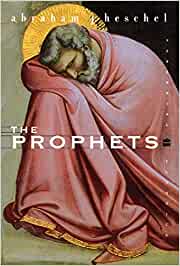
First published in 1962 and later appearing in two volumes, this work by an outstanding Jewish scholar explores the Old Testament prophets and their writings with great insight.
As for prophecy, Heschel explains it is “an interpretation of a particular moment in history, a divine understanding of a human situation” (xxvii). As for a prophet, he “is a lonely man. His standards are too high, his stature too great, and his concern too intense for other men to share. Living on the highest peak, he has no company except God” (127).
In the context of God’s prophets, Heschel examines justice and righteousness, distrust of power, love and compassion, anger and forgiveness, and much more.
I note that Heschel had neither reference nor comment on Micah 5:2—the text foretelling the birthplace of the Messiah. At times Heschel's insights of God and His message were so great, I wondered why he had not embraced Jesus as the Christ.
This book is challenging and well-worth reading.
Aging Matters: Finding Your Calling for the Rest of Your Life by R. Paul Stevens (2016).
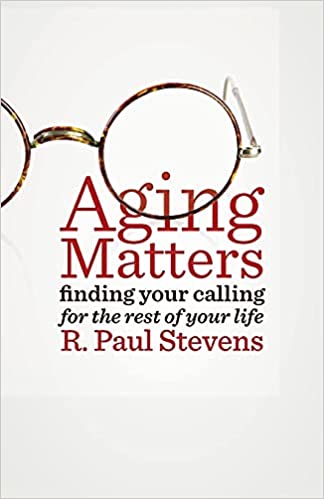
For me, 2021 marked one of those significant life events. So, I thought I would do some recognition, reading, and ruminating about aging.
Surely, for Christians, aging should mean a lot more than a life of continual leisure, golfing, going on cruises, or whatever. My apologies to those who enjoy periodic leisure, golf, a cruise, and the like.
There are some good insights throughout this book. One that struck me was that the Kingdom of God is “the invasion of all of life with the shalom-bringing, life-enhancing rule of God” (125).
This is only one book on aging that I will be reading, but it has the important message that aging is a season in which we ought to continue realizing and living God’s purpose for us.
On the Brink of Everything: Grace, Gravity & Getting Old by Parker J. Palmer (2018).
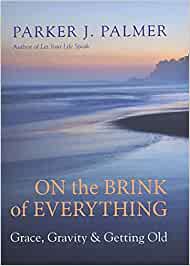
This is another of those books I have gathered on aging.
This is not my first book by Palmer, whose insights I frequently find are outweighed by unbiblical comments and perspectives.
The book starts well but descends into the dismal maelstrom of American culture and its “issues,” including tirades against Trump.
Sorry, but I didn’t get much out of this book that is memorable or valuable.
The Crucifixion of Ministry: Surrendering Our Ambitions to the Service of Christ by Andrew Purves (2007).
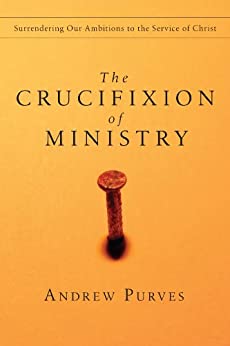
Yet another book that began well, but ….
Near its opening, the author states the necessary core of Christian ministry: the need for Jesus to be present in what we are doing. This is a message we need to hear and remember to serve faithfully.
Similarly, the crucifixion of our ministry is vital if our service is to be empowered by our Lord’s resurrection life.
My main criticism is the author’s assertions that he judges “real human freedom to be a myth” (113ff.) and that we do nothing—God does everything. Further, he states that “even our response to God is made by God” (116, 76ff.). This double-talk denies God’s invitation for humans to cooperate with Him in His purposes and reduces us to mere ventriloquist’s dummies.
This book was a disappointment.
The 3D Gospel: Ministry in Guilt, Shame, and Fear Cultures by Jayson Georges (2017).
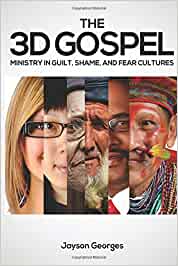
This was my second reading of this short but important book.
In this study, you will learn there are three different dominant cultures, their biblical bases, and the dynamics of how we encounter others.
Understanding these different culture types is essential for serving and communicating the Gospel of Jesus Christ faithfully and effectively.
I highly recommend this book.
I Don’t Want to Talk About It: Overcoming the Secret Legacy of Male Depression by Terrence Real (1998).
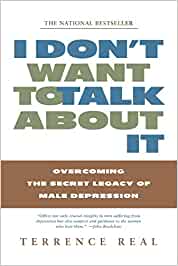
In my discussions with other men, depression (spoken and unspoken) is often expressed.
Terrance Real is an experienced psychotherapist who, from the perspective of psycho-therapy, addresses the “silent epidemic” of male depression.
His diagnosis weighs heavily toward nurture (or socialization) rather than nature, particularly a man’s relationship in his formative years with his father. Real’s treatment, even his idea of wholeness, is secular. I do not dismiss his diagnosis or the treatment but conclude that both are inadequate from a biblical and Christian perspective.
Although dated, two books addressing the issue of depression from a Christian viewpoint are Neil Anderson’s Overcoming Depression (2004) and Tim LaHaye’s How to Win Over Depression (1974). I invite you to recommend other titles to me on this critical subject.
Joyful Exiles: Life in Christ on the Dangerous Edge of Things by James M. Houston (2006).
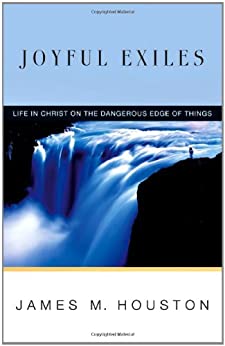
It’s difficult to describe this book. Perhaps the subtitle is enough of an indication.
James Houston, once an Oxford professor, is the founding president of Regent College (Vancouver, Canada). In this volume, he writes on what it means for followers of Jesus to live as exiles. Sometimes rambling, sometimes mystical, but always engaging and profitable, we learn how we can be joyful exiles.
Here are three quotes to give you a taste of what to expect if you read this book:
-
“… only in a sacrificial life do we find God at the center of everything” (121).
-
“… nothing stretches and challenges us—in mind, emotions, will and spirit—more than being a Christian” (145).
-
“The things that cause us the greatest personal suffering can actually free us from ourselves as we never imagined possible” (148).
This is another book I highly recommend.
Understanding Gender Dysphoria: Navigating Transgender Issues in a Changing Culture by Mark A. Yarhouse (2015).
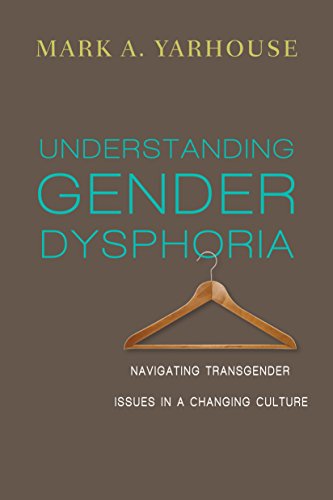
Given the attention paid to transgenderism in our current culture, I thought I should be better equipped to understand and engage this issue in a Christ-like way.
Yarhouse, an expert in sexual identity and therapy, writes from a Christian perspective. He acknowledges that the causes of gender dysphoria are unknown, and “no one is satisfied with anyone else’s perspective on the topic of gender identity” (9, 78).
Although you probably will not agree with everything in this book, it is a credible and thoughtful scientific and theological presentation of the issues. I found his concluding chapters on “toward a Christian response” quite helpful.
I recommend this book with some caution.
The Last Lion: Defender of the Realm 1940-1965 by William Manchester and Paul Reid (2012).
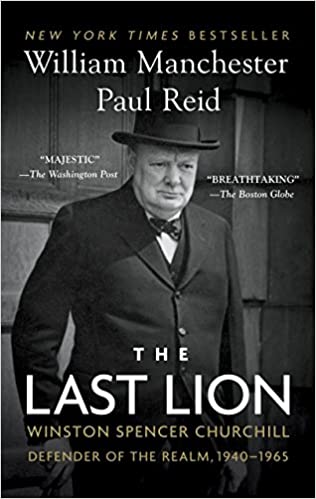
This is William Manchester’s third and final volume on the life of Sir Winston Churchill. Manchester died after researching this book, and Paul Reid wrote it.
This third volume covers Churchill’s ascension to Prime Minister just after the beginning of World War Two until his death in 1965.
For those (like me) who enjoy history, and a well-written biography, all three volumes of The Last Lion are a treat.
Between the Beginning and the End: A Radical Kingdom Vision by J. H. Bavinck (2014).
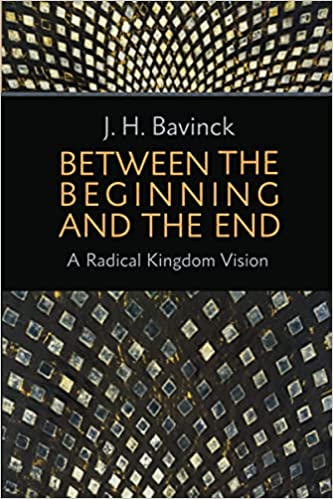
This volume was recommended by a reader of living theology. It is a translation of a 1946 publication, written by a Dutch Christian who had lived through the Nazi occupation of his country during World War Two (1939-1945). It is helpful to understand the historical context within which this book was written.
In Bavinck’s words:
I would like to reflect on how the Bible sees us as human beings, seeking to understand how the Bible views us and what the Bible tells us about ourselves. One thing has already become clear: the Bible regards us both as being in history and standing before the face of God. (4)
He rightly sees “that empire is the opposite of God’s kingdom” (37), a theme echoed in Walter Bruggemann’s The Prophetic Imagination–a book that was formative for me. As such, “Everything in this world is either in Adam or in Christ” (126).
It is a mini-theology of humanity from Creation to Fall, and on to Redemption. His final chapter reflects on some implications of this theology for living life faithfully.
Discovering Matthew: Content, Interpretation, Reception by Ian Boxall (2014).
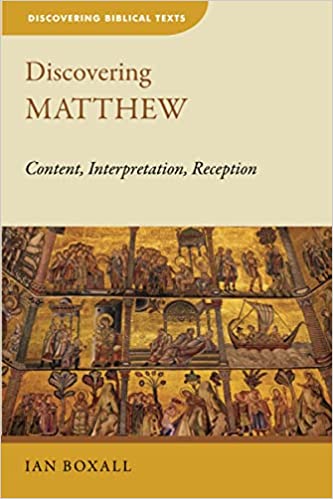
I am usually reading something on the Gospel of Matthew as I develop the Matthew Paradigm.
This short but meaty volume is a good introduction to current biblical scholarship for understanding Matthew’s message.
I also remind you of some full book reviews posted on living theology written in 2021. Here are those titles and their links:
Called by God: Exploring Our Identity in Christ by Derek Tidball (2021).
The Wonderful Spirit-Filled Life by Charles F. Stanley (1995), contributed by Todd Gladman.
Mobilizing Movements: Leadership Insights for Discipling Whole Nations by Murray Moerman (2021).
Let me know what you have been reading together with your assessment.
What do you recommend I put on my reading list for 2022?
FORWARD TO Some books I have read in the first half of 2022
BACK TO Some Books Read in 2020
Photo credit: ▓▒░ TORLEY ░▒▓ on Visualhunt.com
Click "yes" to receive resource-rich newsletters.
Helpful resources provided to 'living theology' subscribers.
YES!
